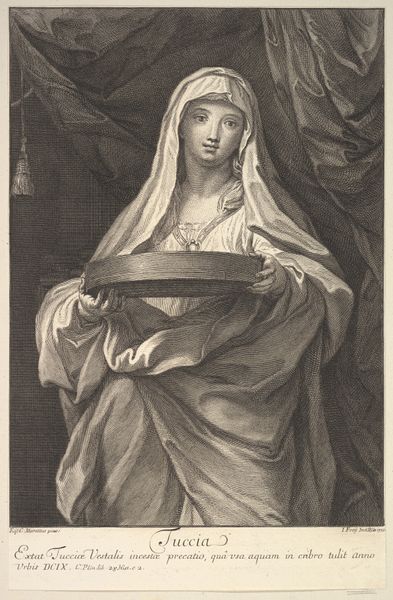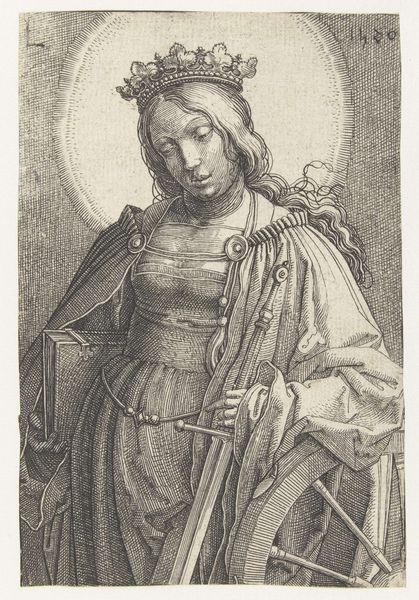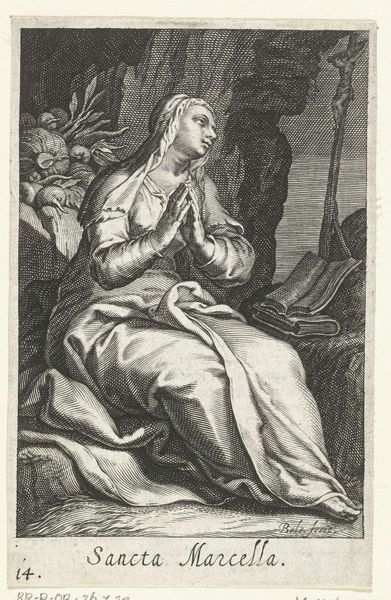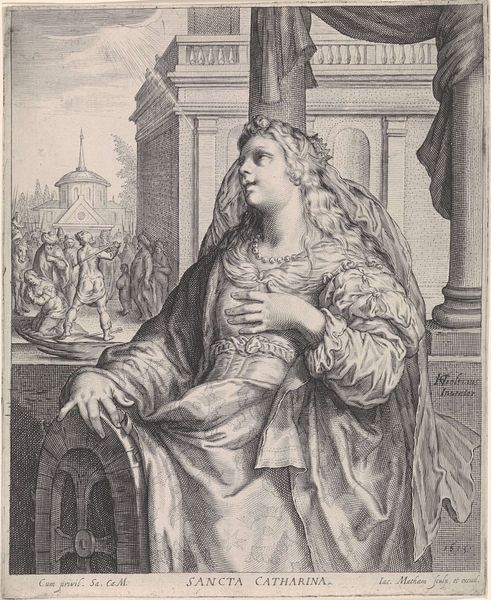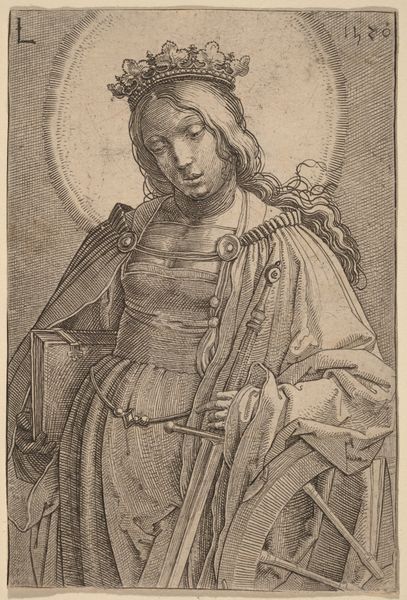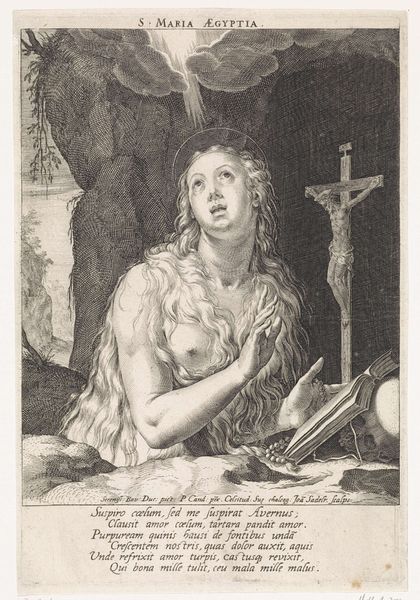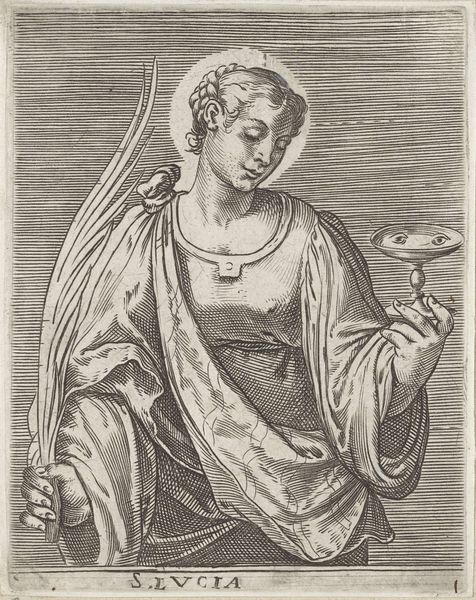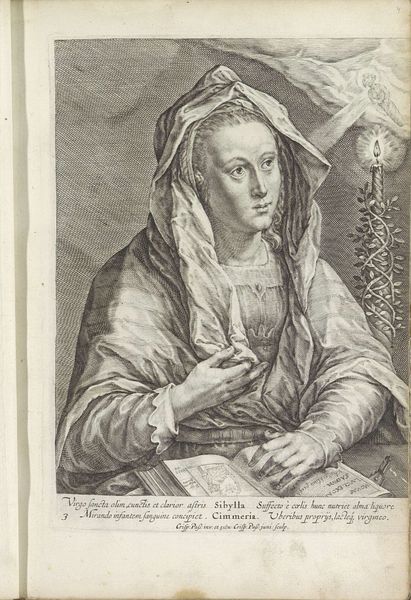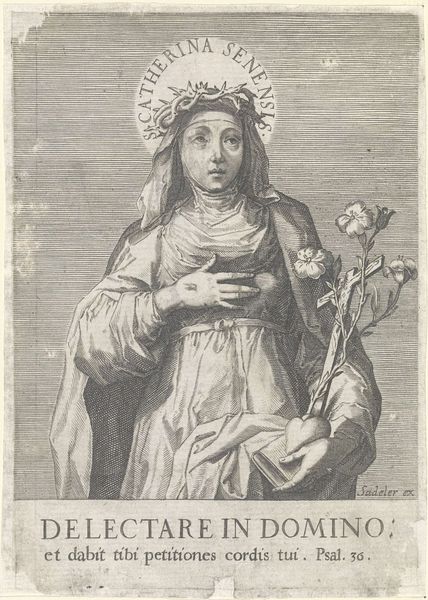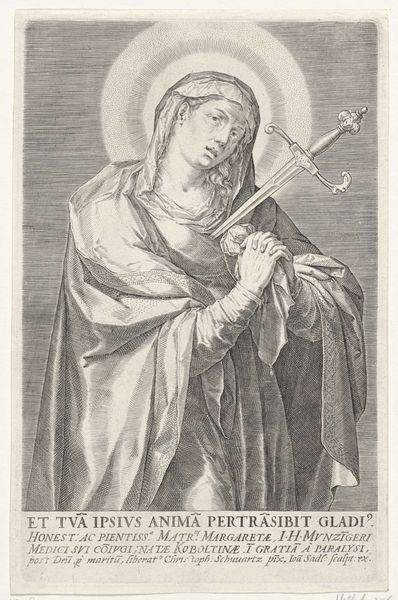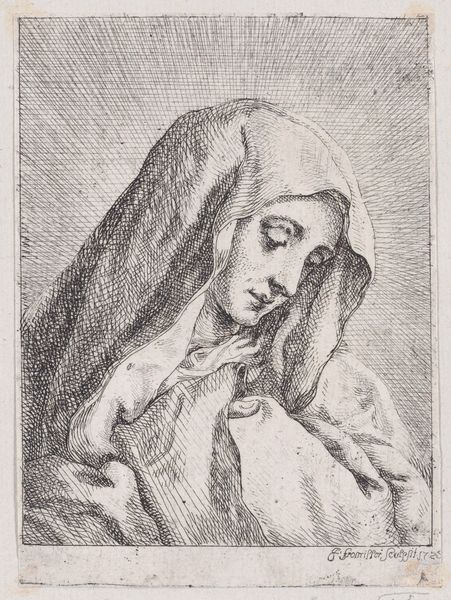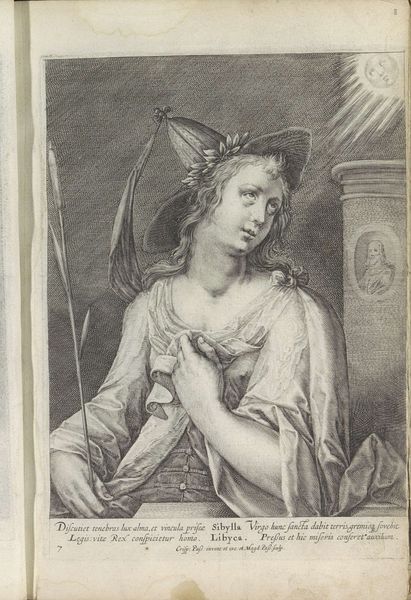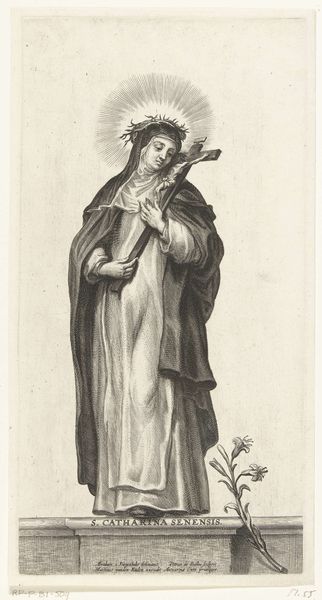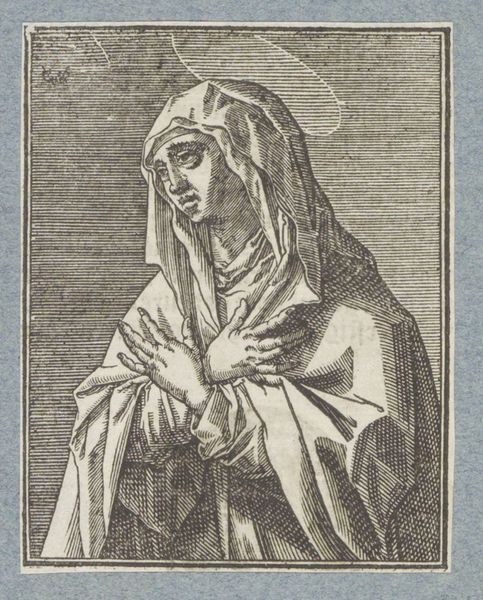
print, engraving
#
portrait
#
facial expression drawing
#
baroque
# print
#
old engraving style
#
figuration
#
portrait reference
#
limited contrast and shading
#
line
#
portrait drawing
#
history-painting
#
engraving
Dimensions: height 267 mm, width 191 mm
Copyright: Rijks Museum: Open Domain
Crispijn van den Queborn created this engraving of the Phrygian Sibyl. It’s a fascinating illustration of the way artists in 17th-century Netherlands negotiated the classical past with the religious present. The Sibyls were prophetesses in ancient Greece and Rome, and were believed to have the power to foresee the future. Queborn’s decision to depict a Sibyl aligns with the broader cultural interest in classical antiquity prominent among European intellectuals and artists of the era. However, the image also exists within a Christian framework. The Sibyl looks up to see the Holy Trinity on a cloud surrounded by angels and bathed in divine light. This visual cue suggests the Sibyl's prophecies foreshadowed the coming of Christ. Understanding Queborn's work requires us to consider the institutional history of art production during this time, as well as the complex relationship between classical, humanistic and Christian ideas in the Netherlands. By looking at collections of engravings, prints, and the writings of humanist scholars we can start to understand the various social forces that shaped this image.
Comments
No comments
Be the first to comment and join the conversation on the ultimate creative platform.
